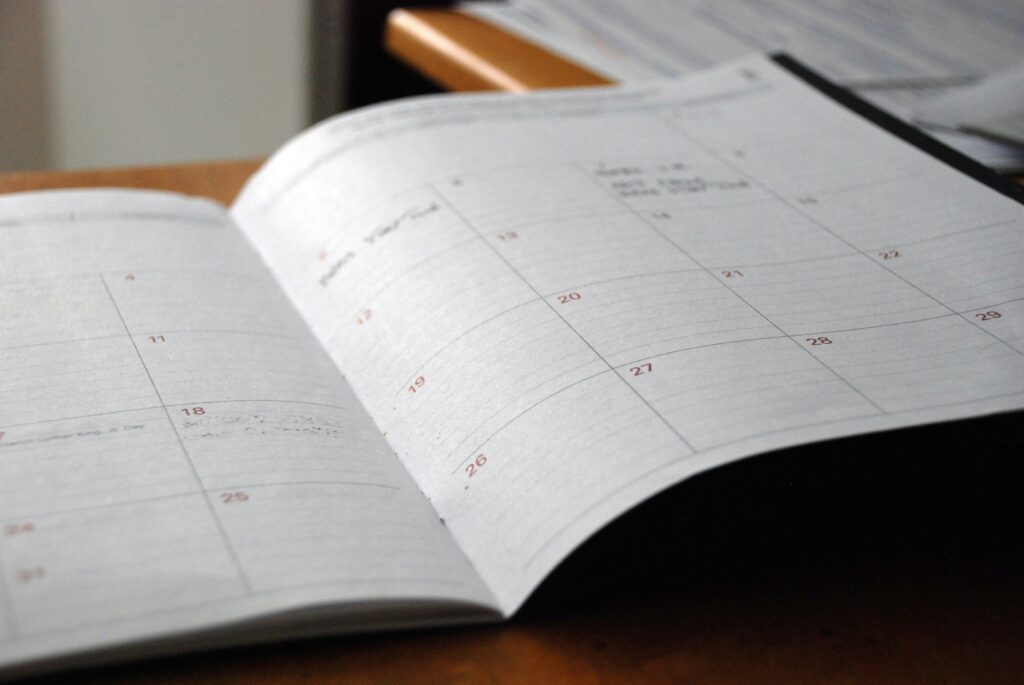One of the most critical aspects of building a custom home on your land is the planning and preconstruction process. If you are building a home for the first time or building a home in a new location with a new builder, there are several key preconstruction considerations you’ll want to be aware of and talk with your builder about to be sure that everything is covered before it’s time to break ground on your new home.
Preconstruction Process & Inclusions
Before we dive into the preconstruction consideration details, what is preconstruction, or the preconstruction phase of your home building project?
When building a custom home on your land the preconstruction phase can include anything you or your homebuilder does before beginning any of the construction. The preconstruction process is a vital stage in custom home building, requiring careful planning and coordination to ensure the realization of your vision.
This phase involves several key components, starting with design decisions, like choosing flooring or the material for your home’s exterior, and encompassing architectural styles, layouts, and features tailored to your preferences. Working with a custom home builder, you can view home plans available or previously built homes to help you find a floor plan and tailor it to your family’s specific needs and preferences.
At this stage you’ll also determine the feasibility of your project and any additional work needed to prepare your land for construction.
Cost estimation and creating a construction schedule are integral parts of preconstruction planning, aiming to establish financial clarity and project parameters. Securing financing for your custom home build and reviewing the construction contract are also crucial steps in the home building process, ensuring financial stability and legal clarity.
Once the contract is signed and selections are finalized, your home builder embarks on a thorough preconstruction planning process. This includes organizing construction teams, applying for building permits, and conducting a preconstruction meeting on-site to align expectations and ensure all required elements are in place to begin construction of your new home.
The ultimate goal of the preconstruction process is to ensure that all stakeholders are on the same page and equipped with the necessary tools and information to proceed smoothly. To assist you in this process, we’ve outlined several key preconstruction considerations that you’ll want to be aware of and potentially need to act on to prepare your property for construction.
Top Preconstruction Considerations When Building On Your Land
When building on your land, there are crucial preconstruction considerations that you as the land owner and future homeowner will want to address to ensure a smooth construction process. Often these key tasks can be handled while your custom home builder is engaged in their preconstruction planning and depending on the builder you work with and the agreement you have, some of these may be included in the work they do. Use this list as a guide to help you during the preconstruction phase. If you are unsure if something is covered by your builder, be sure to ask to ensure each item has been covered and prevent potential delays, additional costs, or complications during construction.
Key Preconstruction Considerations:
- Project Feasibility
- Securing All Necessary Permits
- Preparing Your Lot For Construction
- Road Access
- Lot Clearing
- Utility Connections
Determining Feasibility
Understanding jurisdictional requirements, such as setbacks and zoning regulations, is paramount. It is one of the most critical steps and important factors when buying land to build on and getting started with building a custom home on your land. This assessment ensures compliance with local laws and regulations, laying the groundwork for a successful build. Often your home builder can assist you in this process; however, a homebuilder will work with the information you provide.
As the landowner, you are ultimately responsible for providing accurate information and ensuring that your project meets all jurisdictional requirements. If this due diligence is not done, your building permits can be denied and your design plans may need to be updated to meet the requirements in your area, delaying your project and likely adding to the cost of building a custom home.
Securing Permits
Obtaining the necessary permits is another critical step in the preconstruction phase. Some home builders may require you to submit all permits necessary to start your project, while at Pathway Builders our team will submit the building permit application for each of our customers. However, it’s important to note that payment for the application directly to your jurisdiction is required by you.
Additionally, other permits may be necessary depending on your project and jurisdiction, such as a septic permit, highway district approval, irrigation district approval, or first district approval. These are a few common permit requirements when building a home on your land in Idaho, but in your area permit requirements may be different. Depending on the inclusions in the contract you have with your home builder, submitting permits may or may not be included as part of your builder’s responsibilities. At the end of the day, you’ll want to make sure that any necessary permits have been acquired prior to the start of construction.
At Pathway Builders our goal is to make the home building process as easy and seamless as possible for our clients. Our team will work with you to help you understand the permitting process; however, as the landowner, you are responsible for ensuring that you have all necessary permits before construction begins.
The permitting process can add a significant amount of time to the entire home building timeline because it is heavily influenced by your local permitting office. This makes it all the more important to consider in advance of construction so that your home building schedule doesn’t run into any preventable permitting delays.
Preparing Your Lot For Construction
Adequate preparation of your lot is another essential preconstruction consideration when building a home on your land. This includes ensuring road access for construction vehicles, clearing any heavy vegetation from the building site, and verifying the availability of essential utilities. Depending on the home builder you choose, you may be able to include some of the lot preparation work, such as ensuring road access. However, if these items are not included in your agreement, you’ll need to make sure each of these items is taken care of to avoid surprise delays.
Utility Connections
Utility connections are another important preconstruction consideration when building a home on your land. This includes ensuring an operating power transformer and any other required utilities are in place, with arrangements made to turn on power and other utilities through the power company so that your custom home builder and construction team have the tools needed to begin building on the scheduled start date.
Additionally, and especially when building in an undeveloped or rural area, it’s crucial to confirm that power can not only reach your land but also reach the specific location where construction will take place and your home will eventually be connected to power. We have worked on previous home building projects where the power box needed to be relocated by the utility company so that the construction project and eventually the new home could be hooked up to power. This is just one reason why coordination with utility providers is necessary to ensure all utilities are installed on-site and ready to be connected when needed.
By addressing these preconstruction considerations diligently, you can mitigate potential challenges and set the stage for a successful and efficient construction process. The custom home builder you choose to work with will have a huge impact on the preconstruction process. Because they’ve been through the process in your area previously, they may provide you with a specific list of preconstruction considerations that apply to your project specifically. For more information on selecting a homebuilder, see our tips on how to choose a custom home builder.
Benefits of Understanding Preconstruction Considerations When Building A Custom Home
Understanding and using these preconstruction considerations paves the way for a successful custom home build and provides many benefits. Of course, with any construction project, there can be unforeseen circumstances, but by thoroughly addressing each of these preconstruction considerations, you can ensure that you get exactly what you want and expect, all as close to your anticipated budget & timeline as possible.
Staying on Schedule

One of the biggest benefits of addressing all preconstruction considerations is maintaining the building schedule. When everyone involved is adequately prepared and informed, the likelihood of encountering hiccups or delays during the construction process diminishes significantly. This smooth coordination helps to adhere to the timeline outlined in the project schedule.
Maintaining Your Home Building Budget
Moreover, preconstruction considerations play a vital role in maintaining budgetary constraints. By identifying and addressing potential delays or challenges upfront, you can avoid incurring additional costs associated with unforeseen events. Taking a proactive approach minimizes the need for change orders and prevents budget overruns, ensuring financial predictability throughout the project.
Identifying & Preparing For Potential Issues
Additionally, understanding and anticipating potential challenges or issues is essential during the preconstruction phase. By going through all preconstruction considerations and conducting a thorough assessment of the project site, local regulations, and other relevant factors, you can mitigate risks and address any potential obstacles before they impact the construction process. This proactive risk management approach helps to ensure a smoother and more efficient build.
How long does the custom home building preconstruction process take?
Because every custom home and lot is unique, the timeframe to build can vary from project to project. At Pathway Builders, we have a target timeframe of 75 days from contract signing to the start of construction. This can be significantly impacted depending on permit approvals as some jurisdictions in Idaho may approve in just 2 weeks, while others may take 2 months to approve.
For more detailed information talk with your custom home builder about their experience in your jurisdiction and their average and estimated pre-construction timelines for your specific project. You can also see our resource on how long it takes to build a custom home from planning to occupancy for more information on home building timelines.
Conclusion
Embarking on the journey of building a custom home is an exhilarating experience filled with possibilities. However, it’s the meticulous planning and attention to detail during the preconstruction phase that lay the foundation for success. By understanding the key preconstruction considerations and things you are responsible for in this phase, the process to transform your dream home into a tangible reality will be a more enjoyable experience.
If you are interested in building a custom home on your land in Boise or the surrounding communities of Treasure Valley, contact us. We’d love to talk with you about your homebuilding goals.
Not ready to get started? Take a look at our home building resources to learn more about building a custom home on your land.
